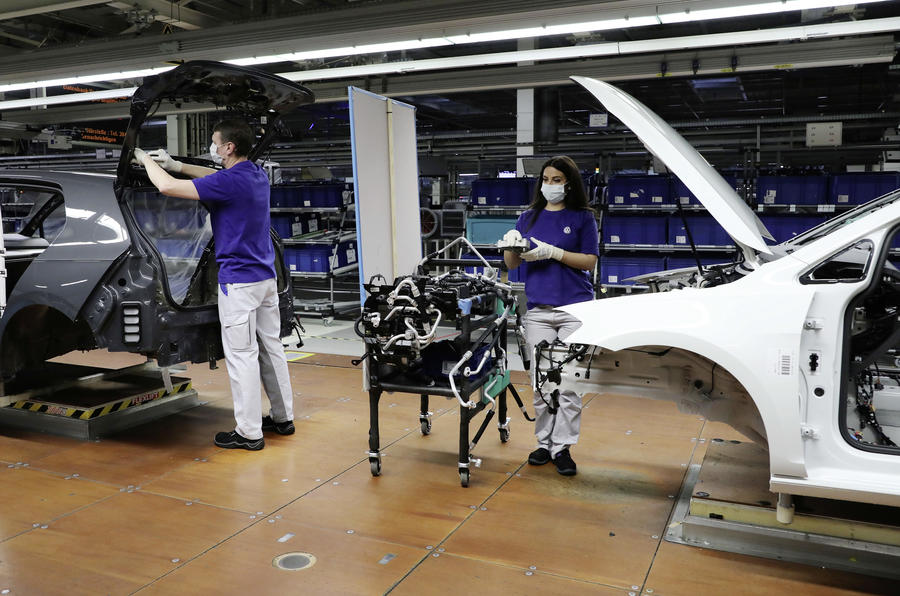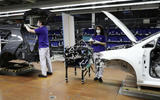As countries pass what is hopefully the peak of their coronavirus outbreaks, focus is shifting onto ways to ease lockdown restrictions and restart society. For the automotive industry, that means getting back to making cars.
The disruption has been huge. The European Car Manufacturers’ Association estimates that across theEU and the UK, shutdowns have resulted in the lost production of more than two million cars – billions of pounds of lost revenue.
The Volkswagen Group, PSA Group, Toyota and Volvo are among the firms to have resumed operations at some European plants. But with business very much not as usual, making cars has become a lot more complicated.
New cars are assembled from thousands of components by hundreds of staff, working in close proximity and handling the same tools and parts. Production lines are designed to build cars as quickly as possible, rather than for social distancing.
The first step is ensuring component supply chains from outside companies are in place. Their failure was why many plants suspended production initially. It’s the reason the first VW Group factories to resume were component plants.
The absolute priority is keeping staff safe and healthy. Both the VW Group and PSA Group have developed around 100 safety measures for their plants. Bernd Osterloh, chair of the Volkswagen Works Council employee body, said: “We have never developed, produced and sold vehicles under these conditions before.”

Firms are ensuring through checks and tests that staff entering factories are healthy.
The PSA Group will take the temperature off staff entering all its plants – including Vauxhall’s Ellesmere Port facility when production resumes there once UK restrictions allow – and require them to self-monitor for symptoms.















Join the debate
Add your comment
Journalists need to be clear,
Journalists need to be clear, we aren't 'over the peak' we are past the FIRST peak in some countries and the threat of covid is here to stay until there is a vaccine which might take many years.
Some of the precautions listed are weak - temperature and pulse oximeter aren't reliable diagnostic tools in any way. SEAT have an effective system providing its results are a fast turn around.
Ultimately the concern for factories is the spread of covid is mainly indoors where there are large numbers of people breathing out the virus. Its likely going to mean FFP2 masks in indoor production areas unless the volume of people per sqm is below a certain number.